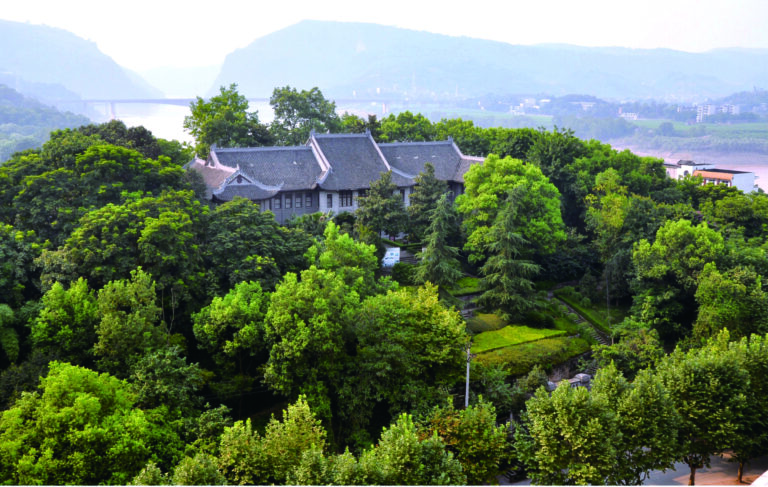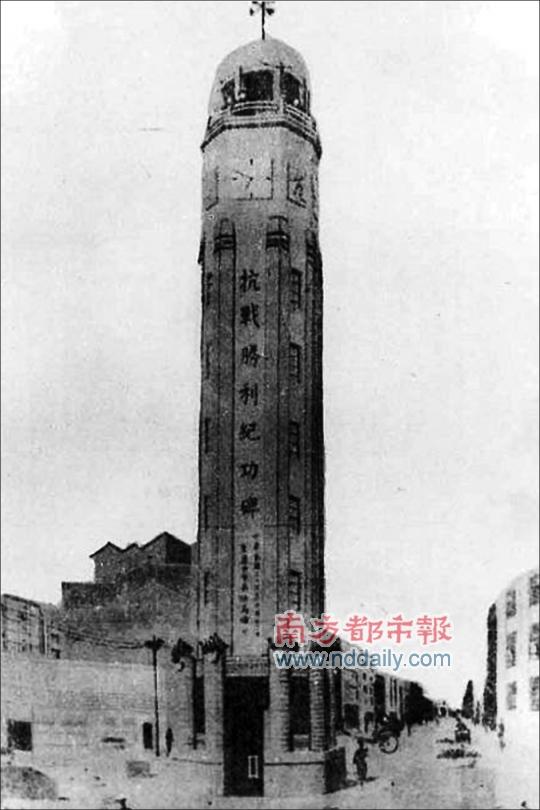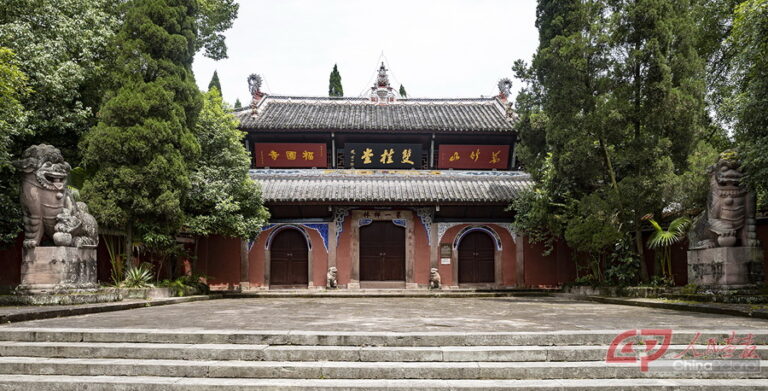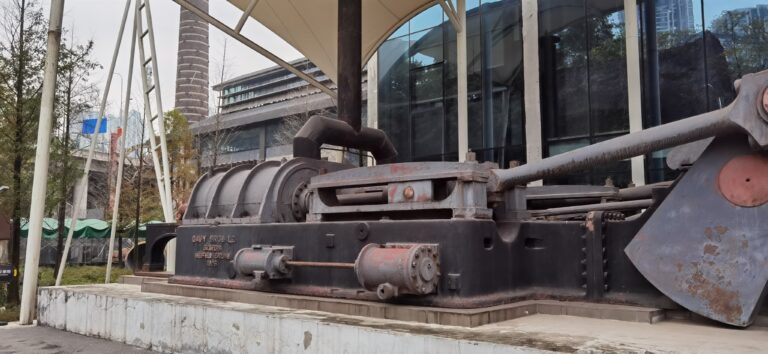A Food Lover’s Guide to Chongqing Teyuan: Savoring Authentic Local Flavors
An Essential Guide to Visiting Chongqing Teyuan
In This Guide
- An Essential Guide to Visiting Chongqing Teyuan
- The Rich History of Chongqing Teyuan
- Main Highlights: What to See at Chongqing Teyuan
- Planning Your Visit: A Practical Guide
- Tickets, Hours, and Booking
- How to Get There
- Local Cuisine and Accommodation
- Frequently Asked Questions
- Final Thoughts on Your Trip
Nestled in the heart of Chongqing, Teyuan (特园) is not just a historical site but a poignant testament to the intertwining narratives of China’s past. Originally built as a private villa by the influential figure Xian Ying in the late 1920s, this exquisite estate became a pivotal meeting point during China’s tumultuous wartime years. It was here that leaders from various political factions, including the Communist Party and the Democratic League, convened to discuss the future of the nation amidst the chaos of World War II.
Designated as a National Key Cultural Relic Protection Unit in 2013, Teyuan boasts a unique architectural style that blends Eastern and Western influences. The estate covers a sprawling 2,010 square meters and features two three-story villas, each adorned with classic Roman columns and elegant terraces, reflecting the rich cultural tapestry of the era. The property not only served as a residence but also as a strategic venue for significant political discussions, including peace negotiations led by Mao Zedong and Chiang Kai-shek in 1945.
Visitors to Teyuan are welcomed by a serene environment that contrasts sharply with the bustling city life outside. The gardens and carefully preserved structures invite exploration and reflection, offering a glimpse into a crucial chapter of Chinese history. As you stroll through the halls where pivotal decisions were made, the weight of history lingers in the air, making Teyuan an essential stop for anyone looking to understand the complex legacies of Chongqing and its role in shaping modern China. Whether you’re a history buff, architecture enthusiast, or simply in search of a peaceful retreat, Teyuan provides a captivating experience that resonates far beyond its walls.
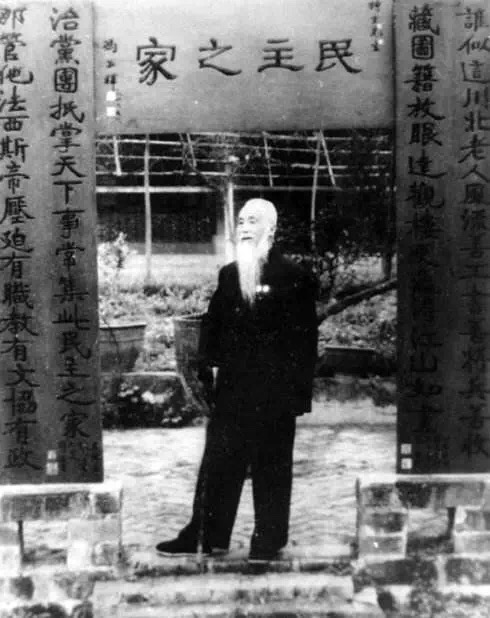
Chongqing Teyuan.
The Rich History of Chongqing Teyuan
Chongqing Teyuan, also known as the Special Garden, is a site steeped in rich historical significance. Located in the Yuzhong District of Chongqing, this area was originally a private villa belonging to the influential figure Xian Ying. Construction of Teyuan began in 1929, and it was completed in 1931. The name “Teyuan” derives from the phrase “Te Sheng,” which is linked to Xian Ying’s name.
During the tumultuous years of the Second Sino-Japanese War, Teyuan took on a pivotal role as a hub for political discourse. Notable leaders of the Chinese Democratic League, such as Zhang Lan and Liang Shuming, resided here for extended periods, utilizing the villa as a venue for strategic meetings and negotiations. The building served as a base for Feng Yuxiang, who used it as his office within the city.
The significance of Teyuan was further underscored in late 1938 when Zhou Enlai, a prominent figure in the Chinese Communist Party (CCP), visited Chongqing. Teyuan became a key location for discussions among various political factions, including the CCP and other democratic parties, as they navigated the complexities of national governance during a time of conflict.
A landmark moment in Teyuan’s history occurred in the summer of 1945, when Mao Zedong visited the villa three times as part of the peace negotiations with Chiang Kai-shek’s Nationalist government. This period marked a critical phase in China’s political landscape, culminating in the first national congress of the Chinese Democratic League being held at Teyuan in October of the same year.
Today, Teyuan is recognized not only as a national key cultural relic but also as a testament to the collaborative spirit of various political entities during a challenging era in Chinese history. The site encompasses 2010 square meters, with a total building area of approximately 1485.48 square meters, featuring two three-story villas that blend Western and Chinese architectural styles. Its historical significance and architectural beauty make Teyuan a vital stop for anyone interested in understanding the complexities of China’s past and the evolution of its political landscape.
Main Highlights: What to See at Chongqing Teyuan
Chongqing Teyuan (特园), located in the heart of Chongqing, is a historical site rich in cultural significance and architectural beauty. Originally built as a private villa for the influential figure Xian Ying in the early 20th century, this site has transformed into a monument that embodies the spirit of cooperation and diplomacy during a tumultuous time in Chinese history.
One of the most notable aspects of Teyuan is its role during the Second Sino-Japanese War. Between 1938 and 1945, it served as a meeting place for leaders from various political factions, including the Chinese Communist Party and other democratic parties, as they gathered to discuss national affairs. This was a crucial period when figures like Zhou Enlai and Mao Zedong frequented Teyuan to negotiate peace and strategize the future of China.
The architecture of Teyuan is equally impressive. The estate comprises two three-story villas, blending Western and Chinese architectural styles, which were completed in 1931. The buildings showcase a unique brick-wood structure with a faded blue-gray exterior and traditional green tile roofs, providing a glimpse into the aesthetic preferences of that era. Visitors can appreciate the well-preserved layout and design that reflect the historical significance of the period.
Visitors to Teyuan can explore its beautifully landscaped grounds, which span over 2,010 square meters. The site is not only a testament to China’s political history but also an artistic expression of its time, making it a must-visit for anyone interested in the rich tapestry of Chongqing’s past.
In recent years, Teyuan has been designated as a key cultural relic protection unit by the State Council of China, ensuring its preservation for future generations. A visit to Teyuan offers a profound insight into the resilience and unity of the Chinese people during a critical juncture in their history, making it a valuable addition to any travel itinerary in Chongqing.
Whether you are a history buff, an architecture enthusiast, or simply curious about China’s past, Teyuan stands as a captivating site that invites exploration and reflection. Don’t miss the opportunity to walk through its halls and feel the echoes of history that resonate within its walls.
Planning Your Visit: A Practical Guide
Practical Guide to Visiting Chongqing Teyuan (特园)
Chongqing Teyuan, a historical site steeped in cultural significance, offers visitors a glimpse into China’s past, particularly during the tumultuous years of the Second Sino-Japanese War. Here’s a practical guide to help you make the most of your visit to this remarkable venue.
Location and Access
Teyuan is situated in the Yuzhong District of Chongqing, specifically at Jia Lingqiao Dong Village, No. 37-49. It is conveniently located near public transportation options, making it easy to reach by subway or bus. The closest subway station is a short walk away, ensuring that you can access this historical site without any hassle.
Opening Hours
Teyuan is open to visitors daily, but it’s recommended to check the specific hours of operation before your visit, as they may vary. Arriving early in the day can help you avoid crowds and enjoy a more tranquil experience.
Admission Fees
Visiting Teyuan is generally free of charge, but special exhibitions or guided tours may incur a fee. Always check in advance for any potential costs associated with specific events or programs.
What to Expect
Teyuan is not just a building; it is a monument to collaboration and dialogue among China’s democratic parties during a critical period in history. Originally a villa built in 1929, it has been preserved to reflect its past when it served as a meeting point for key political figures, including Zhang Lan and Zhou Enlai.
-
Architecture: The site comprises two three-story villas that blend Eastern and Western architectural styles. With their brick-and-wood structure, blue-gray walls, and traditional tile roofs, the buildings are both visually striking and historically significant.
-
Historical Significance: Teyuan is recognized as the birthplace of the China Democratic League and the Sanmin Zhuyi Comrades’ Association, both pivotal organizations during the Republican era. Notable events, such as peace negotiations between the Kuomintang and the Communist Party in the 1940s, took place here.
-
Exhibitions: Inside, visitors can explore various exhibits detailing the historical context of the site, including photographs, documents, and artifacts that showcase its role in China’s modern history.
Nearby Attractions
While visiting Teyuan, consider exploring other nearby attractions to enrich your experience:
- Chongqing Three Gorges Museum: A short distance away, this museum provides insights into the Three Gorges area and the Yangtze River, as well as the history and culture of Chongqing.
- Hongya Cave: Just a few kilometers from Teyuan, this picturesque area is known for its traditional stilt houses and vibrant night markets, perfect for sampling local cuisine and shopping for souvenirs.
- Jiefangbei (Liberation Monument): The bustling commercial center of Chongqing, offering shopping, dining, and a taste of the city’s modern life.
Tips for Visitors
- Guided Tours: Consider joining a guided tour to gain deeper insights into the history and significance of Teyuan. Knowledgeable guides can provide context that enhances your understanding of the site.
- Photography: The architecture and surrounding landscapes present excellent opportunities for photography. Make sure to bring your camera or smartphone to capture the beauty of the site.
- Plan Your Visit: Allocate about an hour to explore Teyuan thoroughly. If you plan to visit nearby attractions, consider setting aside additional time for travel and exploration.
Getting There
- Public Transport: Utilize Chongqing’s efficient public transport system. The subway is a reliable option, and buses frequently service the area around Teyuan.
- Taxis and Ride-Sharing: Taxis and ride-sharing services like Didi are widely available if you prefer a more direct route.
Conclusion
A visit to Chongqing Teyuan offers a unique opportunity to delve into a significant chapter of Chinese history. With its rich heritage, beautiful architecture, and proximity to other attractions, Teyuan should be on every traveler’s itinerary when exploring Chongqing. Plan your visit, immerse yourself in the history, and enjoy the vibrant culture of this fascinating city.
Tickets, Hours, and Booking
When planning your visit to Chongqing Teyuan, it’s essential to know about the ticketing options to ensure a smooth experience. The entrance to Teyuan, a significant historical site that played a crucial role in China’s democratic movement during the 20th century, is designed to be accessible to all visitors.
Ticket Information
- Admission Fee: Entry to Teyuan is free, allowing everyone to explore its rich history without any cost.
- Opening Hours: Teyuan is open daily from 9:00 AM to 5:00 PM, with the last admission at 4:30 PM. It’s advisable to allocate sufficient time to fully appreciate the site’s exhibits and atmosphere.
- Guided Tours: While entry is free, guided tours may be available for a small fee. These tours enhance the experience by providing in-depth information about the site’s history and significance. Check in advance for availability.
- Reservation: Although tickets are not required for entry, it is recommended to check if group visits necessitate a reservation, especially during peak tourist seasons or for educational tours.
- Accessibility: The site is designed to accommodate visitors with disabilities, ensuring that everyone can enjoy the historical and cultural insights Teyuan offers.
Visiting Teyuan is a unique opportunity to delve into a pivotal chapter of Chinese history without the burden of an admission fee, making it an inviting destination for both locals and tourists alike.
How to Get There
Getting around Chongqing Teyuan (特园) and the surrounding areas is a breeze, thanks to the city’s well-developed transportation network. Whether you prefer public transport, taxis, or even scenic cable cars, there are numerous options to make your journey enjoyable and efficient.
Public Transportation
Subway
Chongqing boasts an extensive subway system that is both affordable and convenient. The subway lines connect major attractions, including Teyuan, and are an excellent way to navigate the city. The nearest subway station to Teyuan is Cangxi Station, which is just a short walk away. The trains are clean, punctual, and offer a unique experience as they often run above ground, providing stunning views of the city’s mountainous landscape.
Tip: Download the Chongqing Metro app to access real-time schedules and route planning.
Buses
For those looking to explore more of Chongqing’s neighborhoods, the bus system is another great option. Buses are frequent and cover a wide range of destinations, including popular tourist spots and local markets. Buses to Teyuan are readily available, and a small fare is required, which can be paid with cash or a transportation card.
Tip: It’s helpful to have a translation app handy, as not all bus stop signs are in English.
Taxis and Ride-Sharing
Taxis are widely available throughout the city and are a convenient way to reach Teyuan, especially if you’re traveling with luggage. The fare is reasonable, and most drivers are familiar with popular destinations. You can also use ride-sharing apps like Didi Chuxing, which offer an efficient alternative to traditional taxis.
Tip: Always ensure that the taxi meter is turned on or confirm the fare with your driver before starting your journey.
Scenic Cable Cars
One of the most unique experiences in Chongqing is the Yangtze River Cableway, which offers breathtaking views as it crosses the river. This cable car connects the Jiangbei and Yuzhong districts and presents a fantastic opportunity to see the city from a different perspective. It’s a fun way to travel to nearby attractions while enjoying panoramic vistas of the river and surrounding mountains.
Tip: Try to ride the cable car during sunset for a truly magical experience.
Car Rentals
If you prefer a more independent travel style, renting a car is an option. Various international and local car rental companies operate in Chongqing. However, driving in the city can be challenging due to the hilly terrain and heavy traffic. Ensure you have a GPS device or navigation app to help you navigate the winding roads.
Accessibility
Chongqing is making strides in improving accessibility for travelers with mobility challenges. Most subway stations and buses are equipped with facilities for people with disabilities. Teyuan itself is also accessible, with ramps and designated paths.
Conclusion
Navigating Chongqing and reaching Teyuan is straightforward, with a variety of transportation options available to suit every traveler’s needs. Whether you choose the subway for its convenience, a taxi for comfort, or the scenic cable car for the experience, you’ll find that exploring this vibrant city is both easy and enjoyable.
Local Cuisine and Accommodation
When visiting Chongqing Teyuan, a site steeped in history and culture, it’s essential to indulge in the local culinary delights and find comfortable accommodations that enhance your experience. Here’s a guide to help you navigate the flavors and lodging options in this vibrant city.
Culinary Delights
Chongqing is renowned for its bold flavors, particularly its spicy hot pot, which is a must-try during your visit. Here are some top recommendations:
-
Yuwai Xiaoyu Hot Pot (渝味晓宇火锅)
Located near Jiefangbei, this hot pot restaurant is beloved by locals for its authentic, spicy broth and fresh ingredients. The atmosphere is lively, making it a great spot to enjoy a communal meal.
Address: No. 86, Pipa Mountain Main Street, Yuzhong District -
Dezhuang Hot Pot (德庄火锅)
This restaurant offers a unique nine-grid hot pot, allowing you to experience different flavors in one meal. With scenic views of the Yangtze River, it’s perfect for a relaxing dinner.
Address: L3, No. 1891 East Yuan, Nanan District -
Xiangla Huo (香辣火锅)
For a more casual experience, try this place known for its rich and flavorful broth. The menu features a variety of meats, vegetables, and noodles perfect for customizing your hot pot experience.
Address: Multiple locations, including Yuzhong District
In addition to hot pot, don’t miss trying some local street food:
-
Suanla Fen (酸辣粉)
A bowl of these spicy and sour sweet potato noodles is essential for any foodie. You’ll find many vendors in areas like Hongya Cave.
Try: Xiong Xiong Handcrafted Suanla Fen, located on the 4th floor of Hongya Cave. -
Chongqing Pickled Fish (重庆酸菜鱼)
This dish features tender fish slices simmered in a tangy soup with pickled vegetables, offering a delightful balance of flavors.
Recommended Spot: Shancheng Laotangkou, known for its vibrant dining atmosphere.
Address: No. 88, Baiyi Road, Yuzhong District
Accommodation Options
Choosing the right place to stay can significantly enhance your trip to Chongqing. Here are some excellent options based on different preferences:
-
JW Marriott Hotel Chongqing
Situated just a short walk from Jiefangbei, this luxury hotel features spacious rooms with stunning city views. Guests can enjoy amenities such as a spa, indoor pool, and multiple dining options.
Address: No. 235, Minsheng Road, Yuzhong District -
InterContinental Chongqing Raffles
This hotel boasts a unique location on the banks of the Yangtze River, offering breathtaking views and top-notch service. The hotel features a rooftop infinity pool and fine dining restaurants.
Address: No. 2, Riverside Road, Yuzhong District -
Qidian Hotel
For a budget-friendly option, this hotel located in Shapingba District is perfect for travelers looking for convenience and comfort without breaking the bank. It provides clean, cozy rooms and easy access to public transportation.
Address: No. 188, Beicheng Avenue, Shapingba District -
Floral Hotel, Chongqing
An ideal choice for those seeking a more boutique experience, this hotel is decorated with a floral theme and offers a serene atmosphere. It’s close to cultural sites and local eateries.
Address: No. 123, East Road, Yuzhong District
With these culinary delights and accommodation options, your visit to Chongqing Teyuan will be both delicious and comfortable, allowing you to fully immerse yourself in the rich tapestry of this historic region. Enjoy your journey!
Frequently Asked Questions
-
What is Chongqing Teyuan (特园)?
Chongqing Teyuan is a historic site located in Yuzhong District, Chongqing. Originally a private villa, it was established in 1929 and later became a significant meeting place during the Chinese Civil War. It is recognized as a key cultural heritage site that witnessed pivotal moments in Chinese history, including the formation of the China Democratic League. -
How can I get to Teyuan?
Teyuan is easily accessible by public transportation. You can take the metro to the nearest station in Yuzhong District and then walk a short distance to the site. It is advisable to use navigation apps for precise directions. -
What are the opening hours for Teyuan?
Teyuan typically opens from 9:00 AM to 5:00 PM, but it’s best to check in advance for any changes in hours or special events that might affect access. -
Is there an entrance fee to visit Teyuan?
Entry to Teyuan is usually free, but it’s wise to verify if any special exhibitions or guided tours require a fee. -
Are there guided tours available at Teyuan?
Yes, guided tours are available, and they can provide deeper insights into the historical significance of Teyuan and its role during the tumultuous times in Chinese history. It’s recommended to book in advance, especially during peak tourist seasons. -
Can I take photographs inside Teyuan?
Photography is generally allowed in the outdoor areas of Teyuan. However, be sure to check for any specific restrictions regarding photography inside buildings or during guided tours. -
What other attractions are nearby Teyuan?
Teyuan is located close to several other cultural landmarks in Chongqing, including the Three Gorges Museum, Hongya Cave, and Jiefangbei Square. This makes it easy to plan a full day of sightseeing in the area. -
What should I wear when visiting Teyuan?
Comfortable walking shoes are recommended, as you’ll likely be doing a fair amount of walking. Depending on the season, dress in layers to accommodate Chongqing’s variable weather, which can be humid and warm, especially in summer.
Final Thoughts on Your Trip
In conclusion, a visit to Chongqing Teyuan offers a unique glimpse into the rich tapestry of China’s history, especially during the tumultuous years of the Second Sino-Japanese War. This historical site, where pivotal discussions took place among key political figures, stands as a testament to the resilience and collaboration of diverse groups during a critical era. Surrounded by the stunning natural landscape of Chongqing, Teyuan not only embodies significant historical narratives but also provides a serene escape from the bustling city life.
Exploring Teyuan is more than just a walk through time; it’s an opportunity to reflect on the past while enjoying the beauty of the present. As you traverse its grounds, let the echoes of history inspire you and deepen your appreciation for the intricate connections that have shaped modern China. Whether you’re a history enthusiast or simply seeking a peaceful haven, Teyuan is a must-visit destination that invites you to discover the stories etched into its walls and the vibrant culture of Chongqing. Embrace the journey, and let the spirit of this remarkable place enrich your travel experience.

